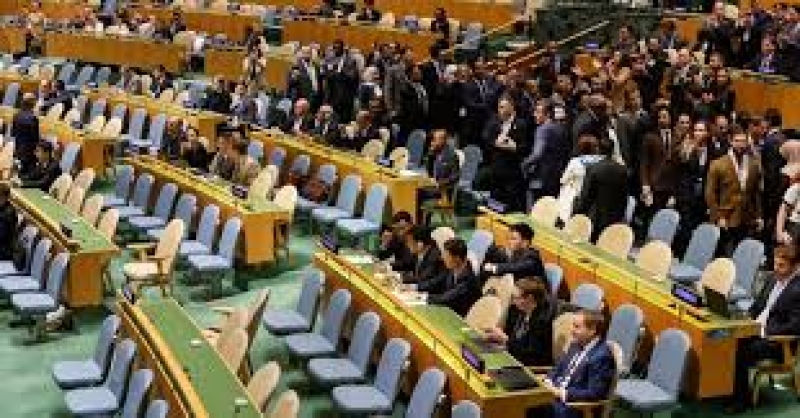- 2,582 candidates submit nomination papers for Bangladesh polls |
- Tarique Urges Collective Effort to Rebuild Bangladesh |
- US Pledges $2 Billion for UN Humanitarian Aid, Covers Bangladesh |
- Postal Ballots Sent to Over 376,000 Bangladeshi Voters Abroad |
- Arms smuggling attempts rise ahead of BD polls: Home Adviser |
Bangladesh Refutes Claims of Attending Netanyahu’s UN Speech

Bangladesh has firmly rejected allegations circulating on social media that its delegation was present during Israeli Prime Minister Benjamin Netanyahu’s speech at the 80th United Nations General Assembly session on Friday. Officials described the claims as “baseless” and “propaganda of the fallen forces.”
Chief Adviser’s Deputy Press Secretary Abul Kalam Azad Majumder clarified that the delegation, led by Chief Adviser Professor Muhammad Yunus, was not in the General Assembly Hall when Netanyahu addressed world leaders. He explained that Prof Yunus had pre-scheduled official engagements that morning which prevented attendance during the Israeli leader’s remarks.
At 9:00 am New York time, Prof Yunus held a meeting with senior members of the Nizami Ganjavi International Center, a global forum of former presidents and prime ministers. Later, at 10:30 am, he attended a bilateral meeting with the Prime Minister of Bhutan at UN Headquarters.
“By the time the Bangladesh delegation entered the Assembly Hall, the Prime Minister of Saint Vincent and the Grenadines, Ralph Gonsalves, was delivering his speech,” Azad said. He stressed that by then, the addresses of Israel, Pakistan, and China had already concluded, making the rumours “completely false and easily verifiable.”
The denial came after images and claims began circulating online alleging Bangladesh’s presence during Netanyahu’s highly contentious speech. The Israeli prime minister used the platform to defend military operations in Gaza, attack global critics, and condemn recognition of Palestinian statehood by several nations, calling such decisions “disgraceful.”
Netanyahu’s remarks sparked significant backlash inside the Assembly Hall. Dozens of delegates walked out in protest, leaving many seats empty, while shouts of dissent were heard from the floor. Iran’s delegation staged a symbolic protest by displaying photographs of children allegedly killed in Israel’s June offensive in Gaza before leaving the chamber.
In stark contrast, when Chief Adviser Prof Yunus later addressed the Assembly, he called for global justice, reforms to international institutions, and stronger solidarity among nations to address mounting crises worldwide.
Bangladesh’s response underscores its continuing opposition to Israeli policies in Gaza and its alignment with international calls for peace, justice, and protection of civilian lives.

